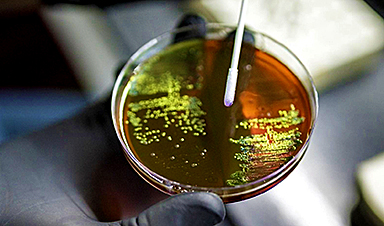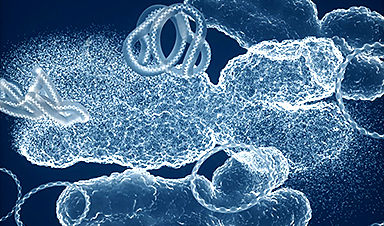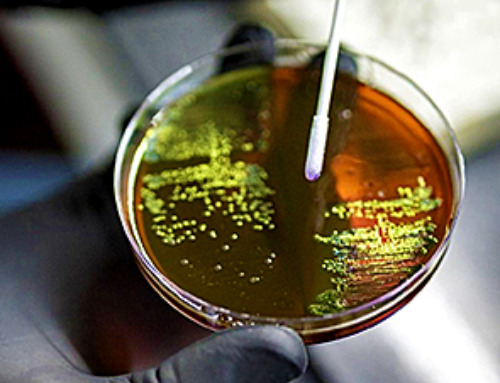Microcontaminants place a considerable burden on our water courses, but removing them from wastewater requires considerable technical resources. Now, ETH researchers have developed an approach that allows the efficient removal of these problematic substances.
In our everyday lives, we all use a multitude of chemical substances, including cosmetics, medications, contraceptive pills, plant fertilisers and detergents—all of which help to make our lives easier. However, the use of such products has an adverse effect on the environment, because many of them cannot be fully removed from wastewater at today’s water treatment plants. As micropollutants, they ultimately end up in the environment, where they place a burden on fauna and flora in our water courses.
As part of a revision of the Waters Protection Act, parliament therefore decided in 2014 to fit an additional purification stage to selected water treatment plants by 2040 with a view to removing microcontaminants. Although the funding for this has in principle been secured, the project presents a challenge for plant operators because it is only possible to remove the critical substances using complex procedures, which are typically based on ozone, activated carbon or light.
Image Credit: phys.org
News This Week
The Global Nanomedicine Market: Key Players and Emerging Technologies in Healthcare
This article provides an overview of the global nanomedicine market, highlighting key players, emerging technologies, and the challenges and opportunities that influence its growth and commercialization in the healthcare sector. Nanomedicines are nanotechnology-based drug products [...]
Scientists Have Discovered Toxic “Forever Chemicals” in Bottled Water
Scientists have found toxic PFAS in drinking water samples from around the world, with higher levels in tap water from China compared to the UK. Boiling water or using a filtration jug can reduce [...]
Urban Microbes Are Eating Disinfectants – Are We Fueling a New Health Threat?
New research reveals that microbes in urban environments are evolving to withstand the very cleaning agents designed to eliminate them. The study also uncovers new strains in Hong Kong, previously only found in the [...]
Startling Study Shows High-Potency Cannabis Alters DNA
The study shows that frequent use of high-potency cannabis alters DNA, affecting genes related to energy and immune function. These changes differ between those with and without psychosis, suggesting cannabis use could influence mental health through biological [...]
New nanotherapy targets artery inflammation in cardiovascular disease
Inflammation of the arteries is a primary precursor and driver of cardiovascular disease—the No. 1 killer of people in the United States. This inflammation is associated with the buildup of dangerous plaque inside the [...]
Revolutionary Nanoparticle Therapy for Prostate Cancer
A groundbreaking research effort involving teams from the University of Virginia, Mount Sinai, the University of Michigan, the University of Texas, and others has displayed the clinical efficacy of an innovative therapy that utilizes nanoparticles and [...]
Antibody engineering drives innovation in drug development
Monoclonal antibodies (mAbs) are used to prevent, detect, and treat a broad spectrum of non-communicable and communicable diseases. Over the past few years, the market for mAbs has grown exponentially with an expected compound [...]
Breakthrough Study Reveals How Bladder Cancer Starts and Spreads
Researchers found that DNA mutations from antiviral enzymes and chemotherapy fuel early bladder cancer, while abnormal circular DNA in tumor cells drives resistance to therapy. These discoveries open new therapeutic avenues. A groundbreaking study led by [...]















Leave A Comment